The threat of a US government shutdown – with White House services disrupted and thousands of federal workers going unpaid – is growing every day as lawmakers have yet to pass a temporary budget for the fiscal year that begins on October 1.
If no agreement is reached by midnight on Saturday, September 30, on funding for the new fiscal year, the U.S. government will shut down. Since the shutdown could materialize over the weekend, its impact won’t be seen until the work week begins on Monday, October 2.
Since September 22, the Office of Management and Budget has reminded senior agency officials to update and review their shutdown plans.
Financial pressure
Nearly 4 million Americans who work for the federal government will feel the immediate effects. Workers in sectors deemed “essential” will continue to work, but others will be furloughed until the government has the funding to reopen. Workers will not be paid during the shutdown.
For many of them, the shutdown will put pressure on their own finances, as it did during the record-long 35-day US government shutdown in 2018-2019.

Although 2 million US military personnel will continue to serve their posts, about half of the Pentagon's 800,000 civilian employees will be temporarily laid off if the US government shuts down. Photo: CNN
“Thousands of members across the country returned holiday gifts because they needed cash, couldn’t make mortgage payments, had to take out payday loans, racked up credit card debt, because they didn’t have a paycheck for a month,” said Doreen Greenwald, president of the National Treasury Employees Federation, which represents 150,000 employees at 35 agencies.
“They’re standing in line at food banks, pulling their kids out of daycare, unable to put gas in their cars, and begging creditors for forgiveness. This is not how America should treat its workers,” Greenwald said.
On average, members of the American Federation of Government Employees earn $55,000 to $65,000 a year, while hourly workers earn an average of $45,000 a year. But thousands of people earn closer to $15 an hour, or $31,200 a year.
“Most of our members live paycheck to paycheck and cannot afford to miss a single payday, let alone more,” said Everett Kelley, president of the American Federation of Government Employees. “That is why we are calling on Congress to do its job and pass a budget to prevent a government shutdown.”
Unpaid leave
While 2 million U.S. military personnel will remain in their posts, about half of the Pentagon’s 800,000 civilian employees will be furloughed. Contracts that were completed before the shutdown will continue, and the Pentagon will still be able to place new orders for supplies or services to ensure national security.
The Department of Energy’s National Nuclear Security Administration will maintain the nuclear weapons. Agents from the FBI, Drug Enforcement Administration (DEA), and other federal law enforcement agencies will continue to work alongside prison staff, according to the Department of Justice’s 2021 contingency plan.
All criminal cases, including two federal cases against former President Donald Trump, will also continue. But most civil cases will be put on hold.
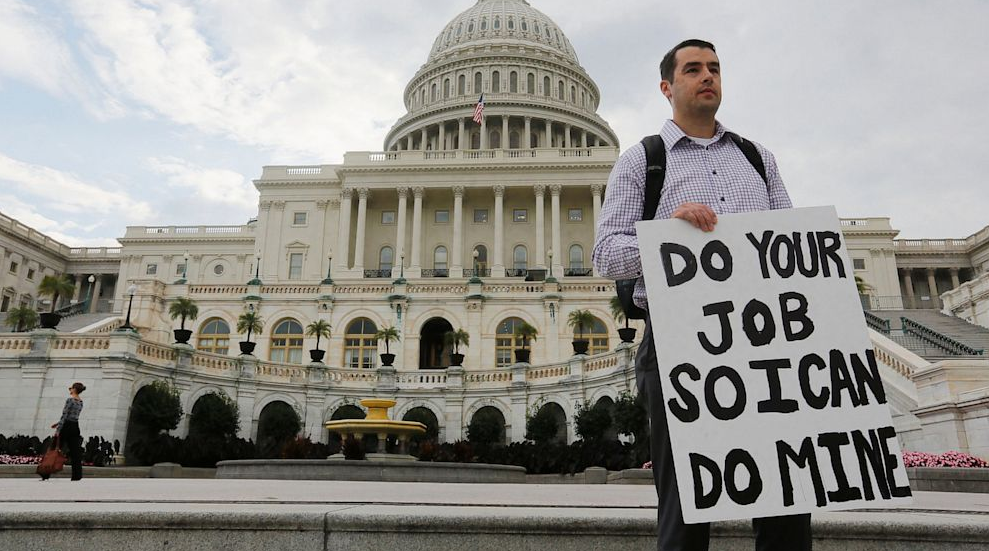
A furloughed federal employee holds a sign on the steps leading to the Capitol after the U.S. government shutdown, October 1, 2013. Photo: ABC News
Border Patrol, Immigration and Customs Enforcement officers will continue to work under the Department of Homeland Security’s 2022 plan. Federal Trade Commission consumer protection officers will be furloughed.
Federal courts will likely have enough money to continue operating until October 13. The Supreme Court will also continue operating. Air traffic controllers and airport security screeners will continue working.
U.S. embassies and consulates will likely operate under the State Department’s 2022 closure plan. Passport and visa processing will also continue as long as there is sufficient funding to cover operations.
Most employees at agencies like the National Institutes of Health, the National Science Foundation and the National Oceanographic and Atmospheric Administration (NOAA) will likely be furloughed.
The International Space Station (ISS) will continue to receive support from the National Aeronautics and Space Administration (NASA), which will continue to monitor the satellites, but will have to furlough 17,000 of its 18,300 employees.
The Centers for Disease Control and Prevention (CDC) will continue to monitor the outbreak, but other public health operations could be affected as more than half of the agency's staff is likely to be temporarily furloughed.
Short term agreement
The shutdown could also have major economic implications, as the Bureau of Labor Statistics said it would stop releasing data, including key inflation and unemployment figures. The lack of important government data will make it difficult for investors and the Federal Reserve to gauge the health of the U.S. economy.
Under the 2021 guidance, the Small Business Administration will not make new loans to any businesses, and the Commodity Futures Trading Commission “will cease most of its operations,” including market oversight.
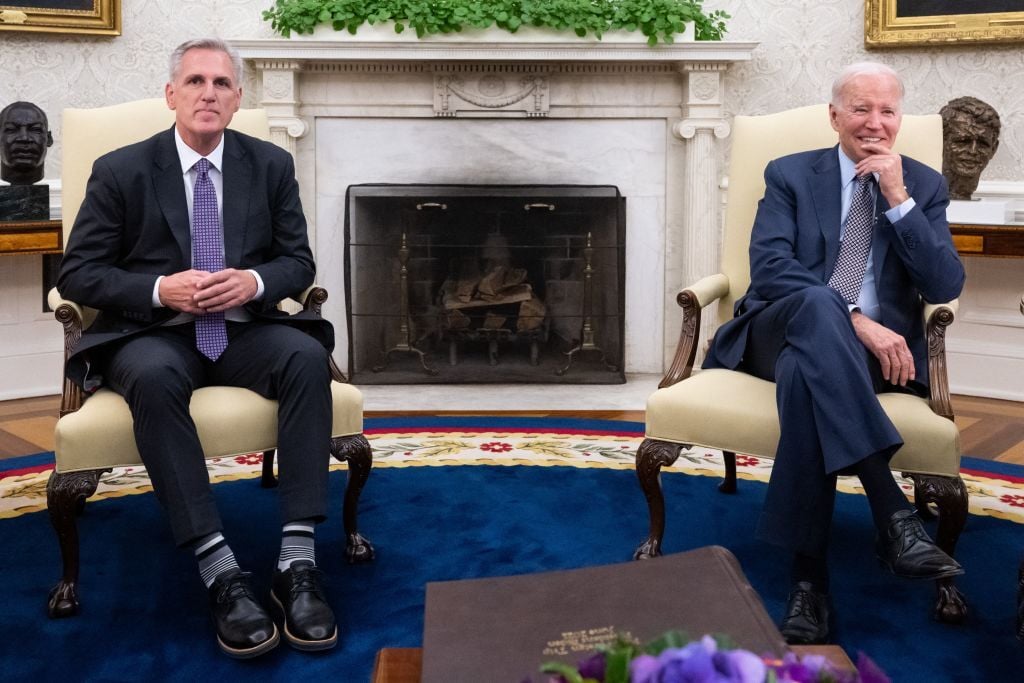
US House Speaker Kevin McCarthy (Republican) and US President Joe Biden (Democrat). Photo: Bloomberg
Currently, there is a deep divide between the House and Senate, making it difficult to reach consensus on a full-year spending bill. Hard-line conservative lawmakers in the House have called for deeper spending cuts and proposed additional controversial policies that have been rejected by Democrats and some Republicans.
As the deadline approaches, top lawmakers from both parties are hoping to pass a short-term funding extension, known as a continuing resolution (CR). The U.S. government frequently uses these short-term measures as a stopgap measure to avoid a shutdown and buy time to reach a broader full-year funding agreement.
Republican House Speaker Kevin McCarthy said he believed he could avert a government shutdown, but it was unclear whether he could win enough votes to move forward with his plan.
The House of Representatives is scheduled to meet on September 26. There, McCarthy hopes to focus on a short-term spending deal of two weeks to two months to keep the government funded while negotiations continue .
Minh Duc (According to CNN, Reuters, WSJ)
Source


![[Photo] National Assembly Chairman Tran Thanh Man attends the ceremony to celebrate the 1015th anniversary of King Ly Thai To's coronation](https://vstatic.vietnam.vn/vietnam/resource/IMAGE/2025/4/13/6d642c7b8ab34ccc8c769a9ebc02346b)


![[Photo] Prime Minister Pham Minh Chinh chairs the Government's special meeting on law-making in April](https://vstatic.vietnam.vn/vietnam/resource/IMAGE/2025/4/13/8b2071d47adc4c22ac3a9534d12ddc17)
![[Photo] National Assembly Chairman Tran Thanh Man attends the Policy Forum on Science, Technology, Innovation and Digital Transformation](https://vstatic.vietnam.vn/vietnam/resource/IMAGE/2025/4/13/c0aec4d2b3ee45adb4c2a769796be1fd)

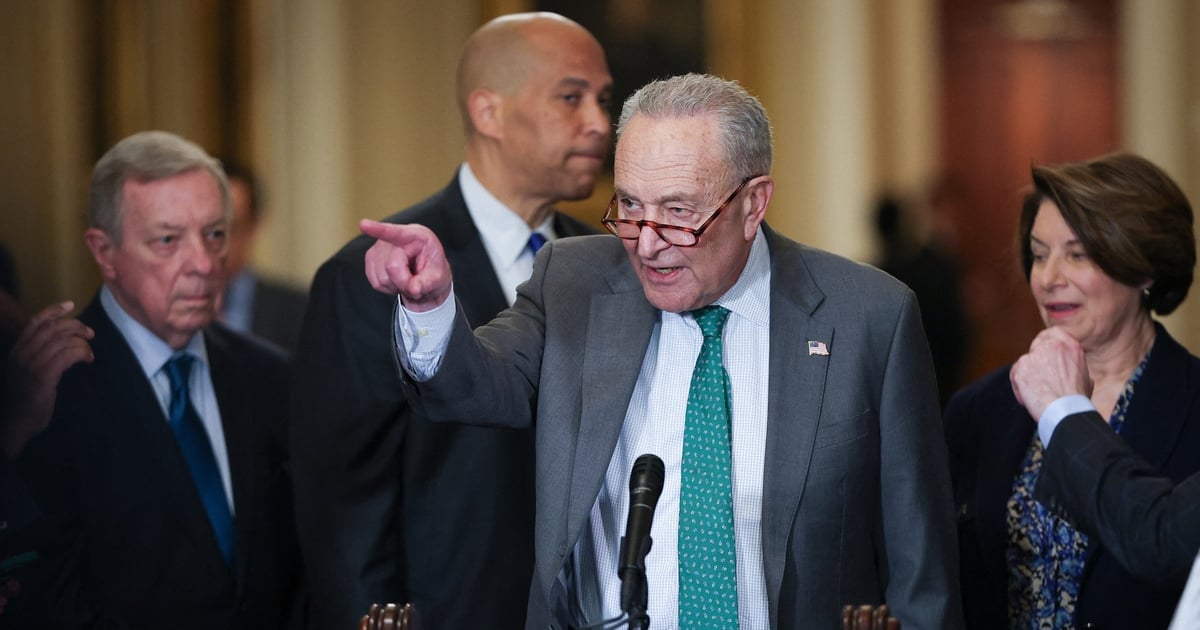

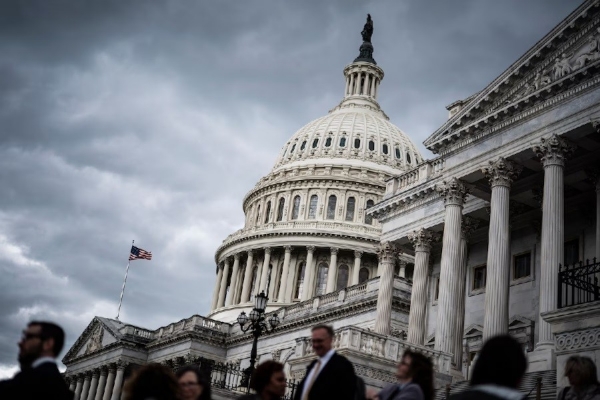

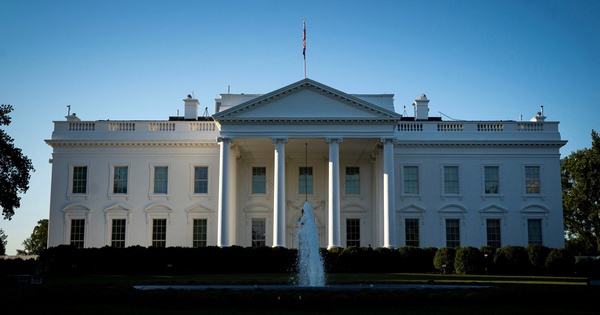
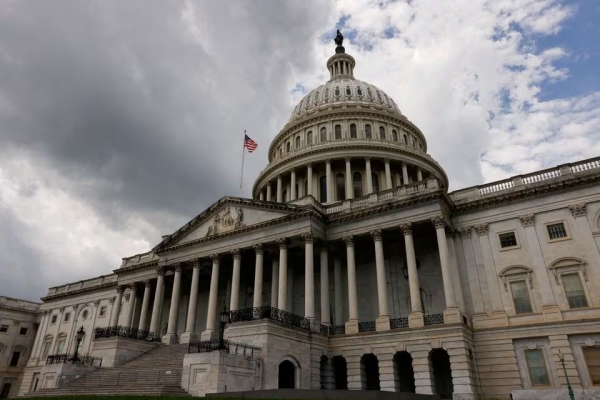
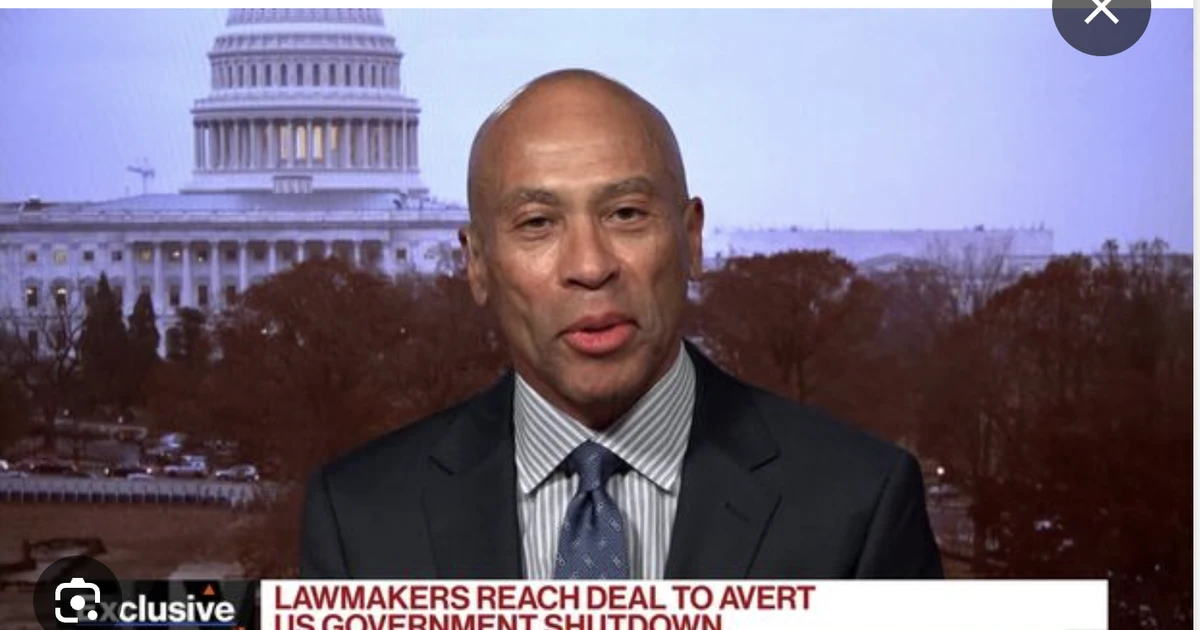





















































































Comment (0)